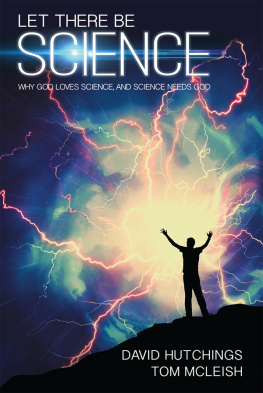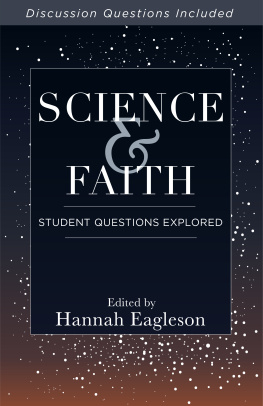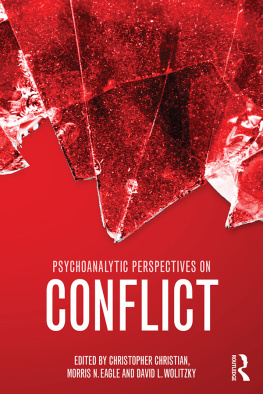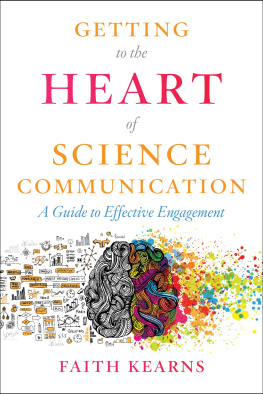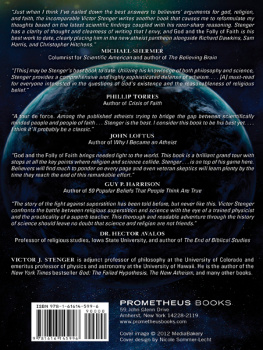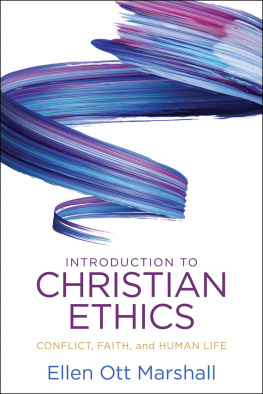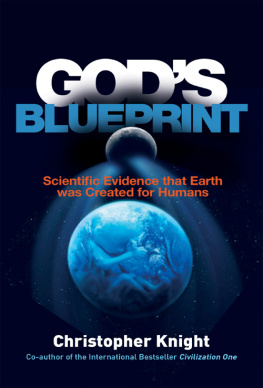BOOK 8 OF THE FOUNDATIONS SERIES
Science
and the
Christian Faith
A GUIDE FOR
THE PERPLEXED

Christopher C. Knight
st vladimirs seminary press
yonkers, new york

Testifying to the faith and creativity of the Orthodox Christian Church, the Foundations series draws upon the riches of its tradition to address the modern world. These survey texts are suitable both for preliminary inquiry and deeper investigation, in the classroom and for personal study.
Peter C. Bouteneff
Series Editor
The publication of this book has been made possible by the Science and Orthodoxy around the World (SOW) project, which is funded by the Templeton World Charity Foundation Inc. The contents reflect the authors own opinions, however, and do not necessarily reflect those of either the project or the Foundation.

copyright 2020
st vladimirs seminary press
Scarsdale Road, Yonkers, NY 10707
1-800-204-2665
www.svspress.com
issn 1556-9837
isbn 978-0-88141-672-5
All Rights Reserved
This book is dedicated to the parishioners and clergyliving and departedof the Parish of the Holy Transfiguration, Walsingham, England, in which I have the privilege of serving as parish priest.
Foreword
R ecent decades have seen no shortage of books and commentary about science and religion. Within these, if were lucky, we might find some subtle and nuanced thinking, helping us to learn both about faith and about science. We are at least shown that it is worth thinking on these things.
Yet there is a persistence of crude arguments, possibly because these attract more attention and sell more copies. Some scientists will argue that religion is a fantasy world antithetical to scientific reality. Some religious voices claim that science is all theories, many of them specious, and that we answer to a higher authority: the Biblewhich can only be read as a literal account of astronomy, geology, zoology, and history. There is no shortage of self-righteousness on either side. The opposition is painted either as simple reason vs. mad fervor, or as spiritual wisdom vs. secular faithlessness.
If you are frustrated by both sides of such arguments, this book is for you.
Because, if I am correct, you are looking for a book written by someone versed in both Christian teaching and life as well as in the methods and realities of scientific inquiry. You want the author to be an inquisitive person who is unafraid of ideas, who will give them due consideration. You want someone who can write out of the lived experience of science and of a practiced, believed faith. You have that author here, and this book reflects all those desired (and relatively rare) characteristics.
When such a book is written by a believing and practicing Christian, how much does it matter whether the author is a Protestant, a Catholic, an Orthodox? On some levels it hardly matters at all; the authors basic faith, knowledge, lived experience, and curiosity may be more consequential. Yet on other levels, Christian confession matters a great deal. For example, what sources are most meaningful to the Christian authors arguments? One hopes that the Bible would be held in common as an authoritative voice. For an Orthodox author, however, the importance of early Christian witness is also paramount. The Fathers of the Church (who also include Mothers) are those persons entrusted with how to read and understand the Bible. Because, as one of these trusted witnesses said himself, back in the fourth century, Scripture is not in the reading but in the understanding. Scripture is not a self-interpreting text.
Recourse to these ancient authorities and other theological and liturgical sources is one of the useful and distinguishing features of this book. We learn about how they read their Bible and their world, and how each informs the other. You may ask, When a fourth-century bishop writes on matters of science and faith, how is it relevant to us moderns and post-moderns? You may also rightly point out that what science even meant in the late-ancient Near East is completely different from what we mean by the word today. While we ought to be wary of anachronismasking modern questions of premodern textsthere are lessons from the past that we can justly apply today, even with all our intellectual and technological advances. Some examples follow.
One of the transformative insights we gain from this study is that our first-millenium forebears were not biblical literalists, in the sense of reading the Bible solely in a literal way. Yes, they believed that the Bible records things that happened (in the form of stories, histories, prayers, parables, etc.), but also that different books in the bible functioned in different ways. (The word for the Bible in Greek is pluralta bibliathe books.) Different books, and even different passages within the same books, were read in quite different ways. Even some of the very same passages were read both historically and allegorically. In the case of someamong them the early chapters of Genesisthe allegorical and moral meanings took precedence. And the readings that always took pride of place were the Christological (or typological), where Adam was seen in relation to Christ, Eve in relation to Mary. The beginning in which the world was created was understood as Christthe alpha and omega; the beginning and the end (Rev 22.13). These insights are fascinating enough on their own, but then we imagine what they imply for our own reading of Genesis, with the additional data that the universe is probably about fourteen billion years old. And the Bible reveals that this very cosmos is created by Christ and transformed in him.
Fr Christopher Knight, a trained astrophysicist and ordained Orthodox theologian, is well positioned to ask the right questions, redirect misleading questions, and take us on a journey towards their exploration and resolution. He begins appropriately with attention to fundamental questions about the relationship of science and faith. He gives insight into both sidescrucially distinguishing science from scientism, and faith from sheer literalism. That essential nuance is one key to liberating us from the logjam of pointless polemics between positions that have no room for each other, not to mention no personal charity, and no intellectual curiositylike those between the New Atheists and Biblical literalists.
Fr Christopher devotes considerable attention to questions about the origins and age of the universe and the creation of the human person. But he discusses many other questions that are not as headline-making but are nonetheless consequential. As one example, he justly devotes an entire chapter to the question of natural theology, where he probes the assets and liabilities of a close reading of Romans 1.20. He also goes further into the term nature itself, which admits multiple meanings, whether it is referring to the created cosmos, or to the humanity and divinity, respectively, of Jesus Christ. In so doing, he is demonstrating an entire approach to reading Scripture and the Fathers such that we are not parroting them or proof-texting, but getting at what they really meant to tell us.


